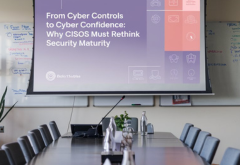Explore the impact of collaborating with AI and automation in the workplace. Discover how these technologies enhance productivity, optimize workflows, and reshape work culture. Consider the challenges and ethical implications while supporting the workforce through this transformative journey.
-Kalpana Singhal
Collaborating with AI and autonomous colleagues in a multi-channel workforce is a topic that is gaining significant attention in today’s rapidly evolving workplace. With the rise of generative AI, there is much discussion around the potential risks and advancements it brings to the future of work. However, amidst this focus, it is important to not overlook the complexities of automation and what they signify for work culture, workspaces, and places.Automation, AI, and the emerging field of generative AI, often referred to as GenAI, have the potential to revolutionize the way we work. They are not merely tools to replace human tasks, but rather technologies that can enhance productivity, optimize operational strategies, and streamline workflows. As these technologies continue to evolve, they are fueling the need for skill development, pushing organizations to adapt and upskill their workforce to meet the demands of an AI-driven world.
One of the key areas where automation and AI are making a significant impact is in improving operational work strategies. With the help of AI-powered algorithms, businesses can now analyze vast amounts of data in real-time, enabling them to make data-driven decisions and optimize their processes. This level of automation not only increases efficiency but also frees up human workers to focus on higher-level tasks that require creativity, critical thinking, and problem-solving skills.
Furthermore, the integration of AI and automation into the workforce is also driving the need for skills development. As certain repetitive tasks become automated, employees are encouraged to acquire new skills and knowledge to stay relevant in their roles. This shift towards upskilling and reskilling is vital to ensure that the workforce can effectively collaborate with AI and autonomous colleagues, leveraging their unique capabilities while also bringing their own expertise to the table.
Employee engagement is another important aspect influenced by AI and automation in the workplace. By automating mundane and repetitive tasks, organizations can create a more engaging and fulfilling work environment for their employees. With the burden of tedious tasks lifted, employees can dedicate more time and energy to meaningful and impactful work, leading to higher job satisfaction and overall productivity.
However, it is crucial to recognize that collaborating with AI and autonomous colleagues also comes with its challenges. As AI becomes more advanced and capable, it is important to establish ethical guidelines and frameworks to ensure that these technologies are used responsibly and in a manner that respects human values and rights. Organizations must also invest in the necessary infrastructure and training programs to support employees in adapting to this new era of work.
In conclusion, the integration of AI, automation, and generative AI into the workforce is reshaping the way we work and collaborate. These technologies hold great potential to improve operational strategies, drive the need for skills development, and enhance employee engagement. However, it is essential to approach this transformation thoughtfully and responsibly, ensuring that the benefits of AI and automation are harnessed while also considering the ethical implications and supporting the workforce through the necessary transitions.
 Latest Technology News Today – Get Latest Information Technology Updates and Services Latest Technology News Today – Get Latest Information Technology Updates and Services
Latest Technology News Today – Get Latest Information Technology Updates and Services Latest Technology News Today – Get Latest Information Technology Updates and Services 









